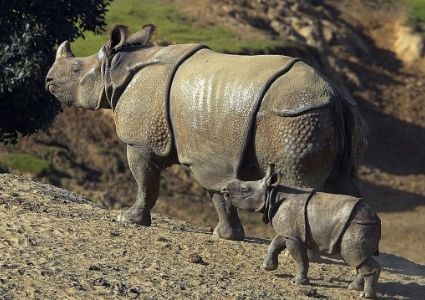Polling

Suggest an important issue not listed in this sub-category (). (Maximum 60 Characters)
Elephant, rhinoceros & tiger parts trade

It is estimated the $23 billion illegal wildlife trade is the world’s fourth-largest black market - after drugs, arms and humans. In 1970, 1.3 million elephants roamed the African savannah. Although the ivory trade was banned, poaching continues to decimate African elephant populations - so much that only 415,000 elephants remain today. Nations which permit elephant hunting now include South Africa, Zimbabwe, Zambia, Mozambique, Namibia and Tanzania. Within these nations exist legal markets for elephant parts. Opponents of the ivory trade say any existence of legal markets will stimulate demand for ivory and encourage poaching in countries such as Congo and Kenya where elephants remain threatened and wildlife patrols are inadequate. It is estimated that about 100,000 African elephants were killed for their tusks by poachers between 2006 and 2016 alone.
The world’s wild-tiger populations have plummeted to 3,900 today. The current population of wild Bengal tigers in the Indian subcontinent is now estimated to be around 1,500. Tigers are disappearing due to the destruction of their natural habitat, uncontrolled hunting, poaching and a thriving international black market in tiger parts. Nearly half of the Earth’s remaining wild tigers live in India. This nation also leads the world in efforts to preserve tiger habitat and protect tiger populations against hunting and poaching. It wages a constant battle against animal part traders interested in the tiger's skin, organs and bones. Demand for these parts is strong in countries such as China, Thailand, Japan, Taiwan and South Korea.
Many ecologists believe rhinoceroses also face inevitable extinction due to loss of habitat and poaching. Prized in Asian medicine for their horn, China, Yemen, Taiwan and South Korea are the main markets for this animal part. Rhinos have been heavily poached since the 1970’s and there are only 5,630 black rhinos and 18,000 white rhinos left. Some of these animals are being relocated to safer areas where their safety is more securely guarded. In 2016 alone, 1,215 rhinos were poached in South Africa, where Rhino horn is estimated to be valued at $60,000 per pound on the black market - three times that of gold. South Africa is home to about 20,000 rhinos, thought to be 80% of the world's total population.
Proposed Legislation: Reintroduction of H.R.6023 - Multinational Species Conservation Funds Reauthorization Act of 2021 (117th Congress 2021-2022)
Prospective Sponsor: Rep. Jim Costa (CA)
The world’s wild-tiger populations have plummeted to 3,900 today. The current population of wild Bengal tigers in the Indian subcontinent is now estimated to be around 1,500. Tigers are disappearing due to the destruction of their natural habitat, uncontrolled hunting, poaching and a thriving international black market in tiger parts. Nearly half of the Earth’s remaining wild tigers live in India. This nation also leads the world in efforts to preserve tiger habitat and protect tiger populations against hunting and poaching. It wages a constant battle against animal part traders interested in the tiger's skin, organs and bones. Demand for these parts is strong in countries such as China, Thailand, Japan, Taiwan and South Korea.
Many ecologists believe rhinoceroses also face inevitable extinction due to loss of habitat and poaching. Prized in Asian medicine for their horn, China, Yemen, Taiwan and South Korea are the main markets for this animal part. Rhinos have been heavily poached since the 1970’s and there are only 5,630 black rhinos and 18,000 white rhinos left. Some of these animals are being relocated to safer areas where their safety is more securely guarded. In 2016 alone, 1,215 rhinos were poached in South Africa, where Rhino horn is estimated to be valued at $60,000 per pound on the black market - three times that of gold. South Africa is home to about 20,000 rhinos, thought to be 80% of the world's total population.
Proposed Legislation: Reintroduction of H.R.6023 - Multinational Species Conservation Funds Reauthorization Act of 2021 (117th Congress 2021-2022)
Prospective Sponsor: Rep. Jim Costa (CA)
Poll Opening Date
December 30, 2024
Poll Closing Date
January 5, 2025
Democracy Rules respects the privacy of your information.
See PRIVACY STATEMENT
See PRIVACY STATEMENT